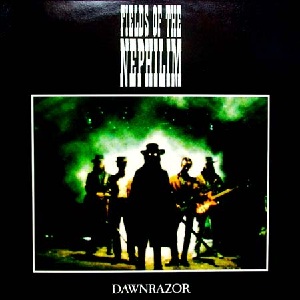High definition audio play back on Mac Mini
202.62.80.178 |
||
| Posted on May 25, 2012 at 04:59:46 | ||
|
Posts: 32
Joined: April 12, 2011 |
I was looking at the many website that sell HD Tracks. I can see that FLAC is the established standard for this format. FALC seems to be the popular format which people use to store their ripped cds too. Now the questions: 1. Do the MAC computers (mac mini) support playback of FLAC files in its native form ? 2. I have seen some of the playback software’s for the MAC support FLAC playback. But from some conversations with some audiophiles, i was able to understand that the soft wares do some workarounds to play FLAC files since the platform does not support FLAC in its native form. I am not sure what actually meant by this. Can someone shed some light ? 3. What file format people who are into high definition files using the MAC as a platform use commonly? |
|
| The digital output of all is identical., posted on May 25, 2012 at 14:35:56 | |
|
I see you are of the Bits-R-Bits camp. Many MANY people would say you are very wrong. |
|
| hence it'll never-endian [nt], posted on May 26, 2012 at 20:41:18 | |
|
Posts: 4424
Joined: February 3, 2001 |
. |
| RE: Wrong Wrong Wrong, posted on May 26, 2012 at 20:57:26 | |
|
Posts: 22597
Location: SoCal Joined: October 19, 2008 |
working on my passes now.... Where will you be? Too much is never enough |
| Well, in my experience with ceteris paribus, of the same recording in FLAC & AIFF would suggest otherwise. nt, posted on May 27, 2012 at 06:38:03 | |
|
Posts: 31024
Joined: September 6, 2000 |
a |
| non sequitur, posted on May 27, 2012 at 07:12:09 | |
|
Posts: 4424
Joined: February 3, 2001 |
Bose |
| Both of my dacs? You have just sought to obscure the question. nt, posted on May 27, 2012 at 07:38:17 | |
|
Posts: 31024
Joined: September 6, 2000 |
a |
| Sorry, I think I will just ignore your advice since I have more prof. advice. nt, posted on May 27, 2012 at 08:26:00 | |
|
Posts: 31024
Joined: September 6, 2000 |
a |
| In this case everything was held constant except... nt, posted on May 27, 2012 at 17:19:55 | |
|
Posts: 31024
Joined: September 6, 2000 |
a |
| Yes, and observed or heard. nt, posted on May 28, 2012 at 12:06:35 | |
|
Posts: 31024
Joined: September 6, 2000 |
a |
| did you even read what I said?, posted on May 28, 2012 at 12:37:46 | |
|
. I have no problem with his choices. In fact, I said absolutely nothing about his choices. . |
|
| RE: Wrong Wrong Wrong, posted on May 28, 2012 at 18:06:18 | |
|
Posts: 6017
Location: Oregon Joined: April 12, 2001 |
Atrium room 239. |
| I don't agree with you nor do several professionals, posted on June 1, 2012 at 05:40:44 | |
|
Posts: 31024
Joined: September 6, 2000 |
But believe what you want. |



